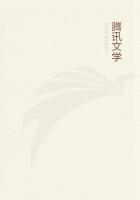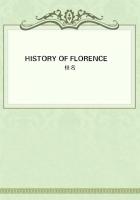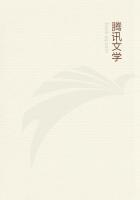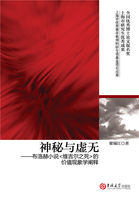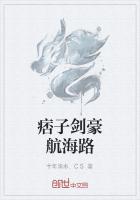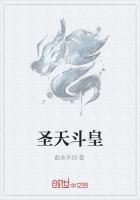A man's personal equation, as astronomers call the effect of his individuality, is kin, for all its complexity, to those simple algebraical problems which so puzzled us at school. To solve either we must begin by knowing the values of the constants that enter into its expression. Upon the a b c's of the one, as upon those of the other, depend the possibilities of the individual x.
Now the constants in any man's equation are the qualities that he has inherited from the past. What a man does follows from what he is, which in turn is mostly dependent upon what his ancestors have been; and of all the links in the long chain of mind-evolution, few are more important and more suggestive than language. Actions may at the moment speak louder than words, but methods of expression have as tell-tale a tongue for bygone times as ways of doing things.
If it should ever fall to my lot to have to settle that exceedingly vexed Eastern question,--not the emancipation of ancient Greece from the bondage of the modern Turk, but the emancipation of the modern college student from the bond of ancient Greek,--I should propose, as a solution of the dilemma, the addition of a course in Japanese to the college list of required studies. It might look, I admit, like begging the question for the sake of giving its answer, but the answer, I think, would justify itself.
It is from no desire to parade a fresh hobby-horse upon the university curriculum that I offer the suggestion, but because I believe that a study of the Japanese language would prove the most valuable of ponies in the academic pursuit of philology. In the matter of literature, indeed, we should not be adding very much to our existing store, but we should gain an insight into the genesis of speech that would put us at least one step nearer to being present at the beginnings of human conversation. As it is now, our linguistic learning is with most of us limited to a knowledge of Aryan tongues, and in consequence we not only fall into the mistake of thinking our way the only way, which is bad enough, but, what is far worse, by not perceiving the other possible paths we quite fail to appreciate the advantages or disadvantages of following our own.
We are the blind votaries of a species of ancestral language-worship, which, with all its erudition, tends to narrow our linguistic scope.
A study of Japanese would free us from the fetters of any such family infatuation. The inviolable rules and regulations of our mother-tongue would be found to be of relative application only.
For we should discover that speech is a much less categorical matter than we had been led to suppose. We should actually come to doubt the fundamental necessity of some of our most sacred grammatical constructions; and even our reverenced Latin grammars would lose that air of awful absoluteness which so impressed us in boyhood.
An encouraging estimate of a certain missionary puts the amount of study needed by the Western student for the learning of Japanese as sufficient, if expended nearer home, to equip him with any three modern European languages. It is certainly true that a completely strange vocabulary, an utter inversion of grammar, and an elaborate system of honorifics combine to render its acquisition anything but easy. In its fundamental principles, however, it is alluringly simple.
In the first place, the Japanese language is pleasingly destitute of personal pronouns. Not only is the obnoxious "I" conspicuous only by its absence; the objectionable antagonistic "you" is also entirely suppressed, while the intrusive "he" is evidently too much of a third person to be wanted. Such invidious distinctions of identity apparently never thrust their presence upon the simple early Tartar minds. I, you, and he, not being differences due to nature, demanded, to their thinking, no recognition of man.
There is about this vagueness of expression a freedom not without its charm. It is certainly delightful to be able to speak of yourself as if you were somebody else, choosing mentally for the occasion any one you may happen to fancy, or, it you prefer, the possibility of soaring boldly forth into the realms of the unconditioned.
To us, at first sight, however, such a lack of specification appears wofully incompatible with any intelligible transmission of ideas.
So communistic a want of discrimination between the meum and the tuum--to say nothing of the claims of a possible third party--would seem to be as fatal to the interchange of thoughts as it proves destructive to the trafficking in commodities. Such, nevertheless, is not the result. On the contrary, Japanese is as easy and as certain of comprehension as is English. On ninety occasions out of a hundred, the context at once makes clear the person meant.
In the very few really ambiguous cases, or those in which, for the sake of emphasis, a pronoun is wanted, certain consecrated expressions are introduced for the purpose. For eventually the more complex social relations of increasing civilization compelled some sort of distant recognition. Accordingly, compromises with objectionable personality were effected by circumlocutions promoted to a pronoun's office, becoming thus pro-pronouns, as it were.
Very noncommittal expressions they are, most of them, such as:
"the augustness," meaning you; "that honorable side," or "that corner," denoting some third person, the exact term employed in any given instance scrupulously betokening the relative respect in which the individual spoken of is held; while with a candor, an indefiniteness, or a humility worthy so polite a people, the I is known as "selfishness," or "a certain person," or "the clumsy one."
Pronominal adjectives are manufactured in the same way.
"The stupid father," "the awkward son," "the broken-down firm," are "mine." Were they "yours," they would instantly become "the august, venerable father," "the honorable son," "the exalted firm." [1]

